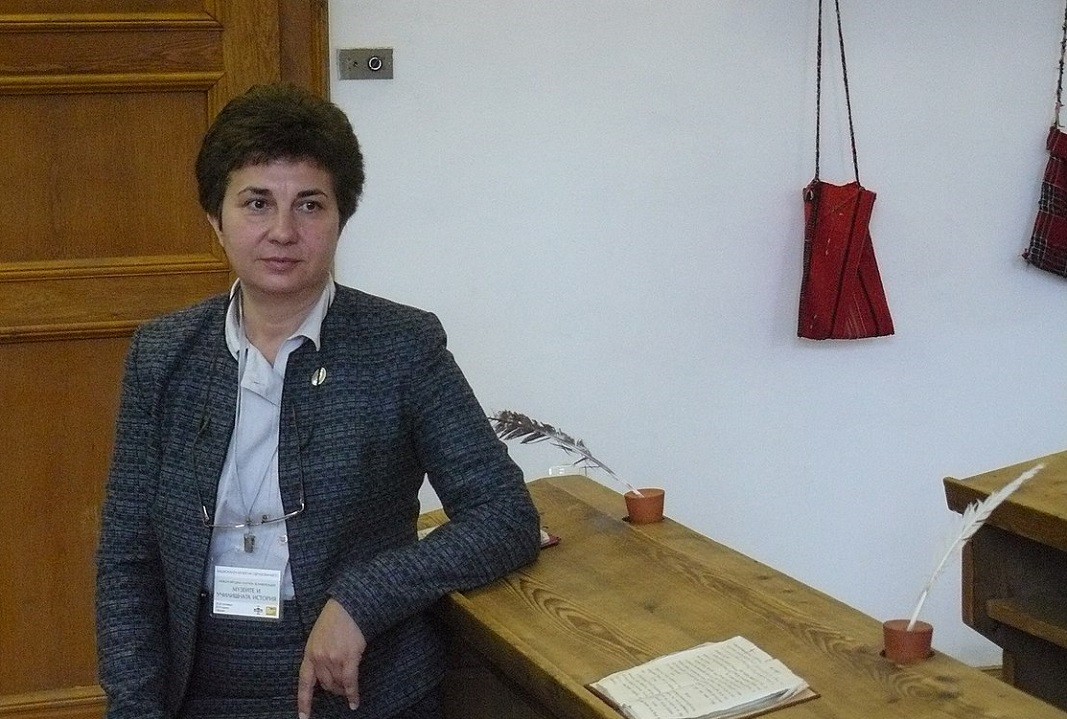
On the day of the Bulgarian Unification, when the whole of the country celebrates 138 years since the unification of parts of the Bulgarian territories fragmented after the Liberation (1878), we talk to university professor Prof. Vera Boneva about a great Bulgarian historical figure from the times of the Bulgarian National Revival, Gavril Krastevich. By the will of historical coincidence, and according to Hegel, coincidence is a manifestation of necessity, the leading figure of the Bulgarian church struggles, the creator of the Bulgarian Exarchy, Gavril Krastevich, was the head of the autonomous region of Eastern Rumelia and made his important contribution to the peaceful and successful implementation of the act of September 6 and the Unification with the Principality of Bulgaria.
“He was appointed Governor-General in May 1884, when the term of office of the previous Governor-General expired. Alexander Bogoridi failed to sufficiently win the trust of the Ottoman Empire, and especially of the Great Powers protecting this fragile balance in the autonomous region."
Krastevich was the chief secretary of the previous governor Alexander (Aleko) Bogoridi Pasha and, unlike him, spoke fluent Bulgarian. He maintained contacts with the main representatives of the political forces. Already as head of internal affairs, then as governor, Krastevich did not hinder the movement supporting Unification. But being appointed by the Ottoman Sultan, he understandably could not assist the committees planning unification.

"When it became clear that things were moving towards the realization of the Unification, he organized a meeting of the ministers in his residence,” Prof. Boneva says. “Konstantin Velichkov proposed that the administration itself must proclaim the Unification. Krastevich refused. But he also refused military support, which was initially offered to him by the Russian military representative. A telegram was prepared for the Turkish Government, which was obligatory in such a case, because of the disturbances which had already begun on the 2nd of September, with a request to send troops into Eastern Rumelia. This was a mandatory action that was to be performed by the governor. The telegram was written. He gave the telegram to his assistant who was to take it to the post office. When the ministers left, Krastevich called the assistant back and took the telegram without sending it. That is how he prevented Turkish troops from entering the autonomous region."
Back in 1885, September 6 was a Friday, and September 8 was the date of the wedding of one of the ministers in the Eastern Rumelia government - Mihal Madzharov. In order to protect them from the upcoming commotion, at the meeting on September 5, Krastevich said: "Everyone, go to the wedding. I'll stay here and I'll be fine." That is how some of the opposition figures and those who suggested that the government must behave much more conservatively left Plovdiv. On the day of the Unification, Krastevich was arrested. Early in the morning, he was driven through the streets of the Rumelian capital in a carriage, being humiliated in front of the people.

"He felt bad about the way in which he was literally driven out of Plovdiv,” Prof. Boneva continues. “We know his famous phrase ‘I am Bulgarian too and I have nothing against this unification’. Bulgarian society, however, respected him. When a telegram about his death arrived in the National Assembly on November 16, 1898, all MPs stood up. There was a minute of silence. There were many obituaries and one of them was written by Ivan Vazov, who uttered a famous phrase about Gavril Krastevich - ‘true merit is modest and dignified’. Vazov finished his memorial speech for Krastevich with this phrase."
At the end of our conversation, the researcher points out that Krastevich was born in the town of Kotel, together with the great revolutionary Georgi Sava Rakovski. The two studied together under teacher Raino Popovich. Their paths separated and one became the leader of revolutionaries in the Bulgarian National Liberation Movement. Krastevich, on the other hand, reached the highest legal positions in the Ottoman Empire and constantly tried to promote the Bulgarian national interests at every opportunity given to him in the imperial and international system.
“History is not impartial. It is influenced by the people who compose it, and we must say that the more moderate, more modest, more reserved and introverted Krastevich objectively and subjectively did not have the chance to receive this historical recognition that his personal friend and classmate Georgi Stoykov Rakovski received. This is history and we should not be angry with it", Prof. Vera Boncheva says in conclusion.
See also:
English: Al. Markov
Photos:
On June 13, the Orthodox Church celebrates the Feast of the Ascension, when the resurrected Christ ascends into heaven. The great Christian holiday always falls on a Thursday, forty days after the Resurrection of Christ. This is also the last day when..
On June 13, the Orthodox Church celebrates the Feast of the Ascension, when the resurrected Christ ascends into heaven. The great Christian holiday always falls on a Thursday, forty days after the Resurrection of Christ. This is also the last day when..
One of the most renowned Bulgarian poets, Atanas Dalchev, was born on June 12, 1904, in Thessaloniki, in a wealthy family living near the White Tower. His father, Hristo Dalchev, was among the most prominent Bulgarian citizens in Thessaloniki. He was a..
One of the most renowned Bulgarian poets, Atanas Dalchev, was born on June 12, 1904, in Thessaloniki, in a wealthy family living near the White Tower...
On June 13, the Orthodox Church celebrates the Feast of the Ascension, when the resurrected Christ ascends into heaven. The great Christian holiday..
On June 13, the Orthodox Church celebrates the Feast of the Ascension, when the resurrected Christ ascends into heaven. The great Christian holiday always..

+359 2 9336 661
